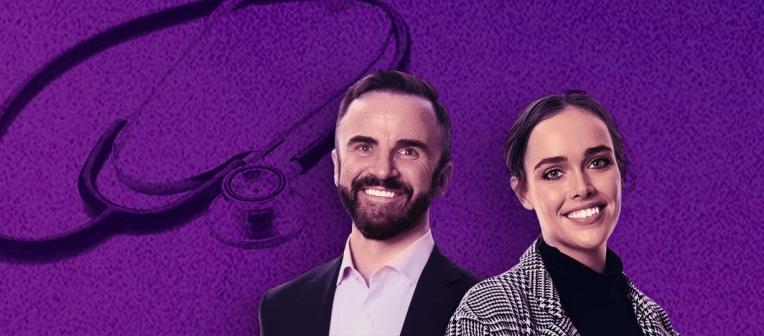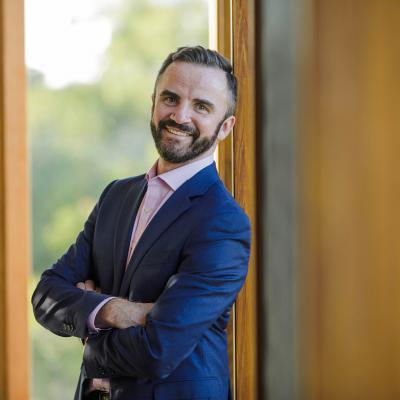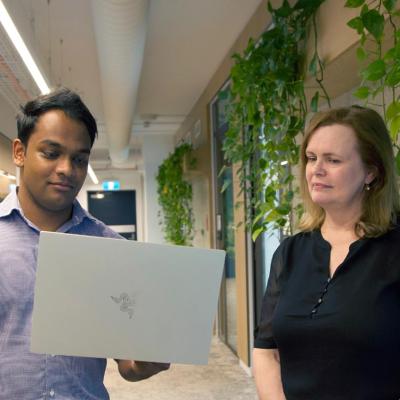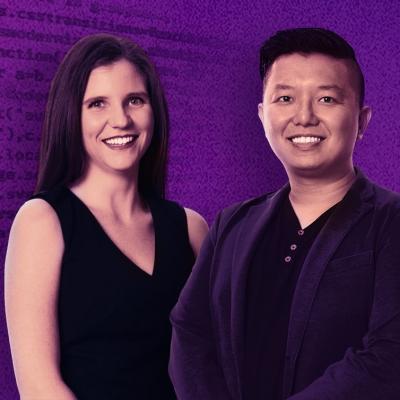Creativity and innovation drive medical advancement and our future doctors and clinicians may come from all kinds of backgrounds.
Innovative ideas in medical education
Whether it’s conducting trials into a promising cancer vaccine, developing game-changing ultra-rapid genetic testing or doing award-winning research into preventing risks to mothers and babies during pregnancy, the Dean of UQ Medical School, Professor Stuart Carney, sees creative and innovative medical solutions every day.
“A career in medicine is a wonderful and privileged opportunity to make a difference in the lives of patients and the public,” he says.
A psychiatrist by training, Stuart says the days of doctors being an authoritarian group are disappearing, with gender diversity the most marked shift in the program’s 80-year history.
“When UQ admitted its first class of medical students, only 2 of the 21 were women (less than 10%). This year it was around 50%. Our students were born in more than 80 countries and bring a rich global perspective, and around 30% are from a rural background,” he says.
“However, we still have more work to do to encourage more applications from Aboriginal and Torres Straits Islander peoples. We need to improve the ethnic diversity of our doctors and also to attract more students from low socio-economic backgrounds.”

Diversity leads to innovative medical solutions
Stuart believes increasing the diversity also means encouraging people from different academic fields to use their talents to solve medical problems.
“Medicine benefits from graduates who bring different perspectives,” he says.
“Whether this is students whose first degree was law helping to develop the ethical and legal frameworks within which we work; engineers harnessing the potential of 3D printing to help people walk again; social workers helping to better understand and address the role of poverty in health outcomes; or those with an IT background driving advances in telehealth to overcome the tyranny of distance.”
Stuart says the fact that UQ is a comprehensive university better prepares students for the challenges of 21st century medicine.
“It requires us to work collaboratively with the architects, it requires us to work with the engineers, it requires us to learn from Aboriginal and Torres Strait Islander colleagues,” he says.
“It requires us to think about different solutions to the ‘wicked’ problems we’re facing in healthcare, and students benefit from this broad, research-based environment.”
A ‘wicked’ problem that exploded in 2020 is, of course, COVID-19, but Stuart says that has spurred significant medical innovation at UQ – including pioneering work on vaccine development, as well as 3D printing being used to make ventilator parts, and existing drugs repurposed for treatment.
Undergraduate Rosie Stoke says starting her studies at UQ opened her eyes to the vast diversity of careers that medicine offers.
“Looking at whether or not I want to do public health and policy, or if I want to look at the future of technology and health – there are so many different things I was passionate about growing up that I didn’t necessarily think I would be able to investigate and celebrate in a medical career,” she says.

“The excitement about being a doctor is only one part of it.”
Stuart says no matter their background, his faculty’s goal is to give students a strong foundational knowledge, encourage them to be themselves and always push for a better way to do things.
“It’s about how they approach problems, how they critically appraise data, how they work as a member of a team, how they channel their curiosity,” he says.
“That will stand them in great stead for the next 30, 40, 50 years of their glittering careers.”
Want to bring a new perspective to the world of medicine? Discover your own pathway to medicine at UQ.






